NC State on the Coast
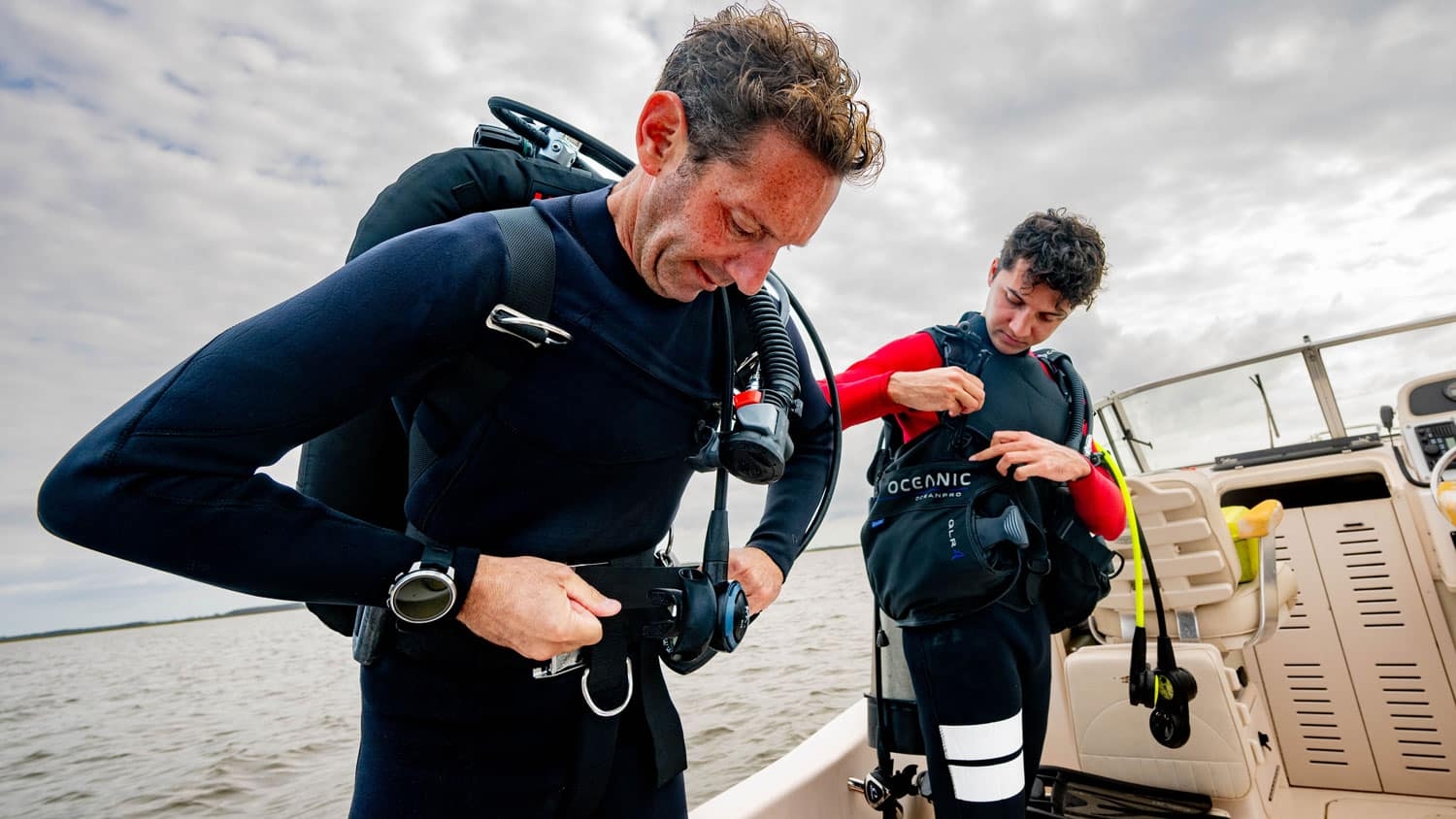
On a breezy September day, doctoral student Zakir Bulmer sits on the edge of a boat on the Pamlico Sound and allows himself to fall backwards into the water. He’s spending the day scuba diving at different sites across the sound with his advisor, Tal Ben-Horin, an assistant professor in the Department of Clinical Sciences.
It’s an enjoyable way to spend the day, but they’re there on business. Ben-Horin and Bulmer spend one day a month collecting water, oyster and blue crab samples on the coast as part of their research for the newly established North Carolina Center for Coastal Algae, People and Environment (NC C-CAPE).
The center brings together nine faculty members from five different colleges across NC State to address the growing concern of harmful algal blooms on North Carolina’s coast. The group seeks to understand, predict and reduce the risks that harmful algal blooms pose to the ecosystem and people of coastal North Carolina.
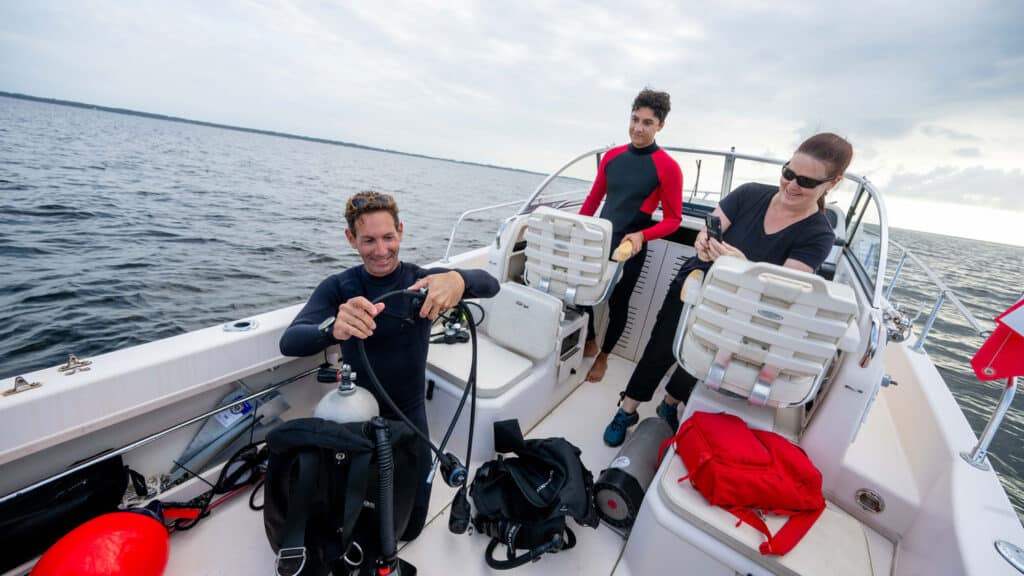
An Interdiscplinary Solution
Solving the world’s problems takes a village. NC C-CAPE came together because the nine collaborators saw an opportunity to combine their expertises and maximize the impact of their individual research. The group — which consists of coastal oceanographers, toxicologists, epidemiologists, climate modelers and social scientists — is led by Astrid Schnetzer, director of NC C-CAPE and a professor in the Department of Marine, Earth and Atmospheric Sciences, and Scott Belcher, NC C-CAPE co-director and professor in the Department of Biological Sciences.
The scale of the center came as a surprise to Barrett Rose ’23, a research technician in Schnetzer’s lab who recently earned her bachelor’s in marine science and biological oceanography. She’s been working with Schnetzer since her senior year and started helping with preliminary sampling across the Pamlico-Albemarle Sound System prior to the center’s establishment.
“In the past few months, we’ve officially started to sample as NC C-CAPE,” Rose said. “It was a shock to see the magnitude of how much we were actually studying. It went from a small pilot study to a huge center effort.”
Data collection and analysis is only the first part of the work NC C-CAPE seeks to do. While harmful algal blooms are common in fresh waters across the U.S. and the world, major data gaps around the issue exist. Schnetzer’s data will inform NC C-CAPE’s other two projects, which focus on predicting the health risks of toxic algal blooms on mammals and humans, as well as considering how factors like climate change will affect future toxin levels in water and seafood.
“The most exciting aspect of NC C-CAPE for me is that the research doesn’t end where my expertise ends,” said Schnetzer. “What we learn from the field about algal toxins is handed to the next team to look at the bigger picture on the ecosystem level and in connection to human health.”
Coastal Algal Ecology
In the first project, researchers will monitor toxic algal blooms across the Pamlico-Albemarle Sound System. They will then link the patterns of the blooms over space and time to the contamination of seafood.
Toxicology and Epidemiology
The second project will focus on understanding the effects of long-term exposure to toxic algal blooms, such as their potential to cause liver cancer.
Modeling and Climate Research
In the third project, researchers will use computational modeling to predict toxin concentrations in water and seafood under conditions like a changing climate.
Student Opportunities
Faculty — and the people of coastal North Carolina — won’t be the only ones benefiting from the interdisciplinary nature of NC C-CAPE. Undergraduate and graduate students will have the opportunity to work alongside the nine principal investigators, gaining exposure to various disciplines and novel techniques and instrumentation.
“One of the wonderful opportunities for students within NC C-CAPE is they will actually switch from one lab to the other and learn how different disciplines approach the same issue,” Schnetzer said. “This interdisciplinary training will become more and more of an asset for students as they go out into the workplace.”
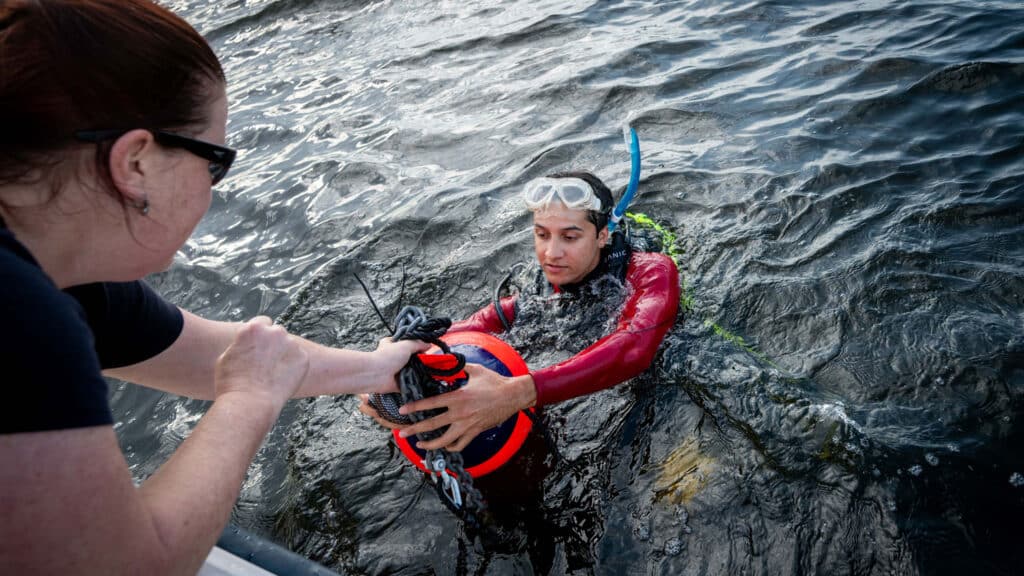
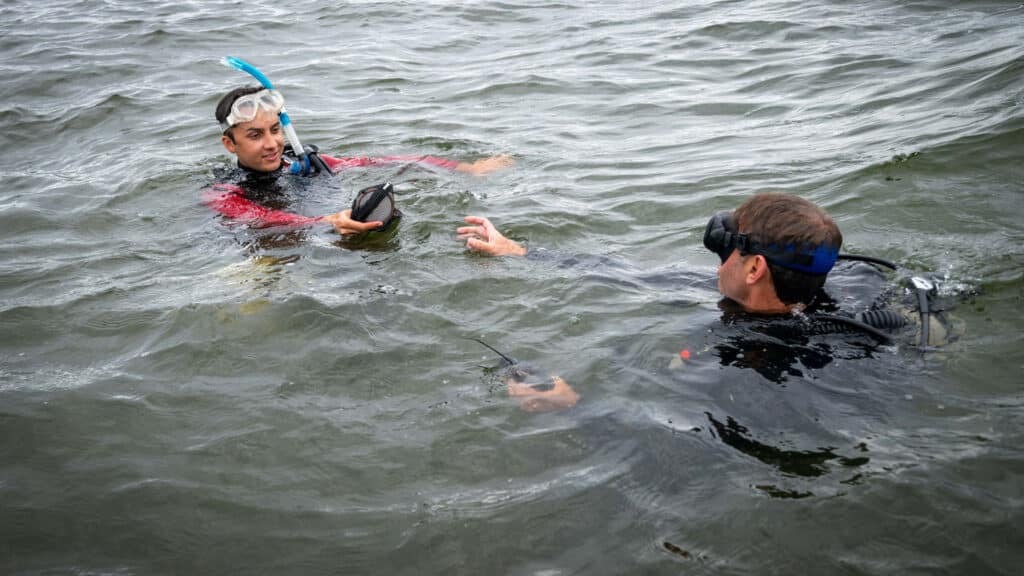
For Will McClure ’22, NC C-CAPE was a major factor in his decision to remain at NC State for his doctorate. As an undergraduate student, he began working in Schnetzer’s lab through the Provost’s Professional Experience Program. He went on to pursue a master’s in marine science, which he’s set to complete in December.
“We were hearing rumblings in the lab about possible funding for NC C-CAPE before the news came out,” McClure said. “I was applying to doctorate programs, and that was definitely the project I wanted to work on the most. When we heard it was getting funded, that practically made the decision for me to stay at NC State.”
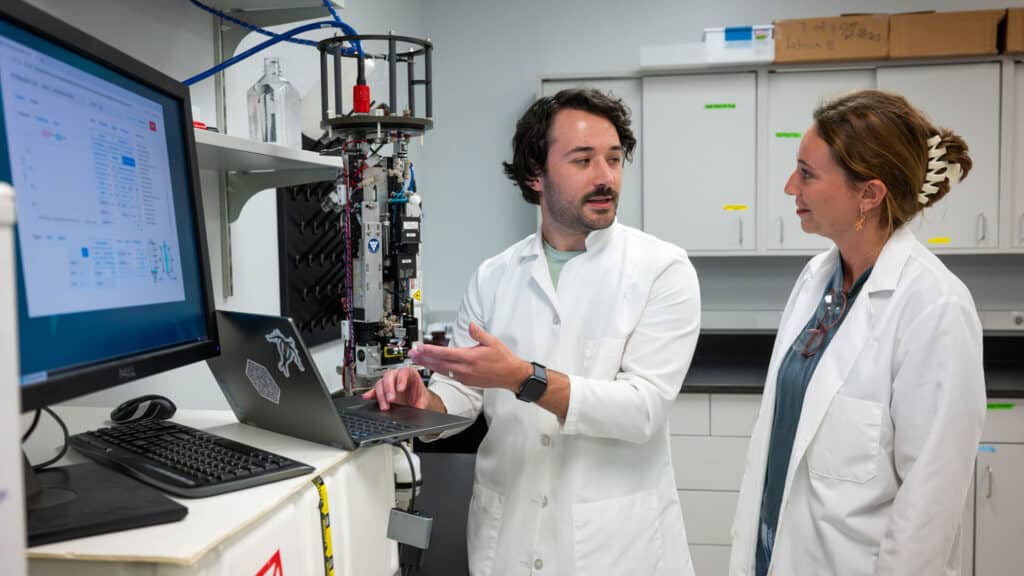
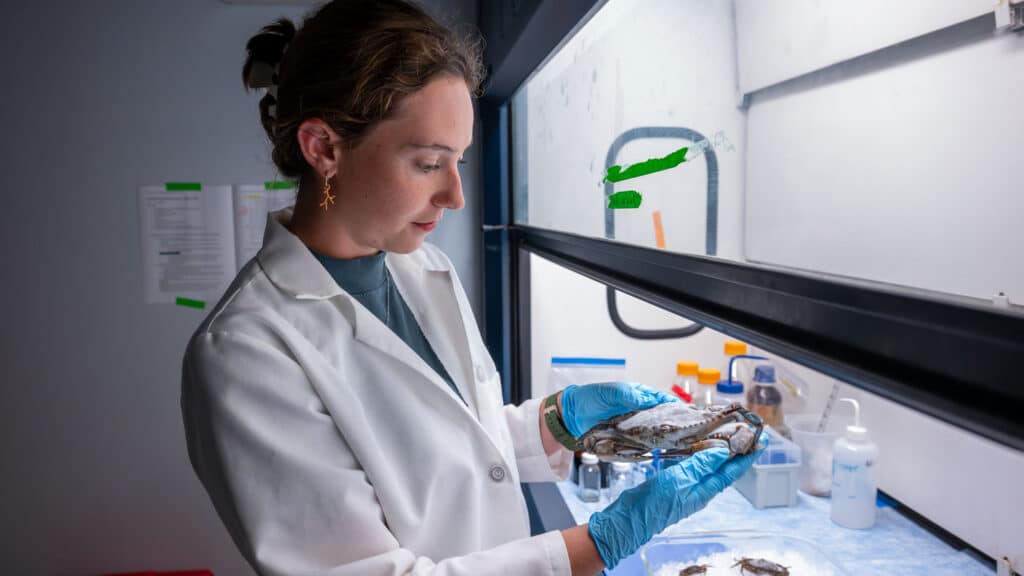
McClure’s primary role for NC C-CAPE is being the main technician for the Imaging Flow Cytobot, a fluid imaging device that will be deployed into the Pamlico Sound and provide near real-time data. He’s aiming to have it ready for deployment by spring 2025.
“Blooming events can happen very rapidly and degrade very rapidly, as well. We could miss one by a couple of days,” McClure explained. “The Imaging Flow Cytobot will be key in telling us if there is a bloom happening, so we’ll know when we need to go and collect water samples to help us see what types of toxins are present.”
Engaging Communities
Tennessee native Lucy Roussa had never been to North Carolina before coming to NC State for graduate school. The third-year doctoral student’s first visit to the state’s coast was to collect water samples for NC C-CAPE.
“I took samples at the Goose Creek State Park in Washington, North Carolina, and I thought it was so beautiful that the next week I went on a camping trip there,” Roussa said. “I get very invested in the land around me. I like to learn about its history, species and ecology. The North Carolina coast is so special and so diverse.”
NC C-CAPE is determined to protect the region and its recreational and economic value — and they’re working with local communities and stakeholders to do so. In addition to the three research projects, NC C-CAPE also has a community engagement core.
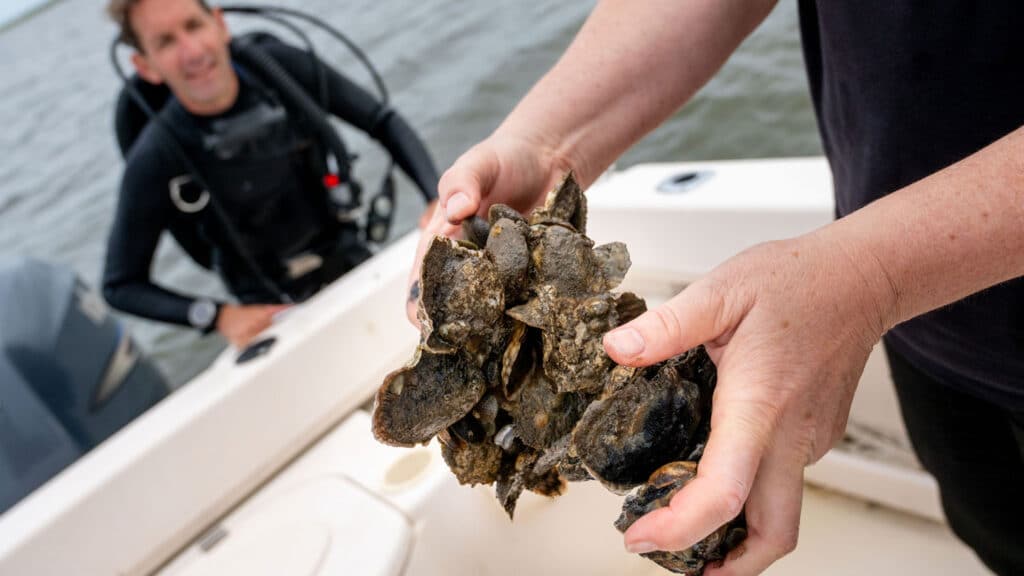
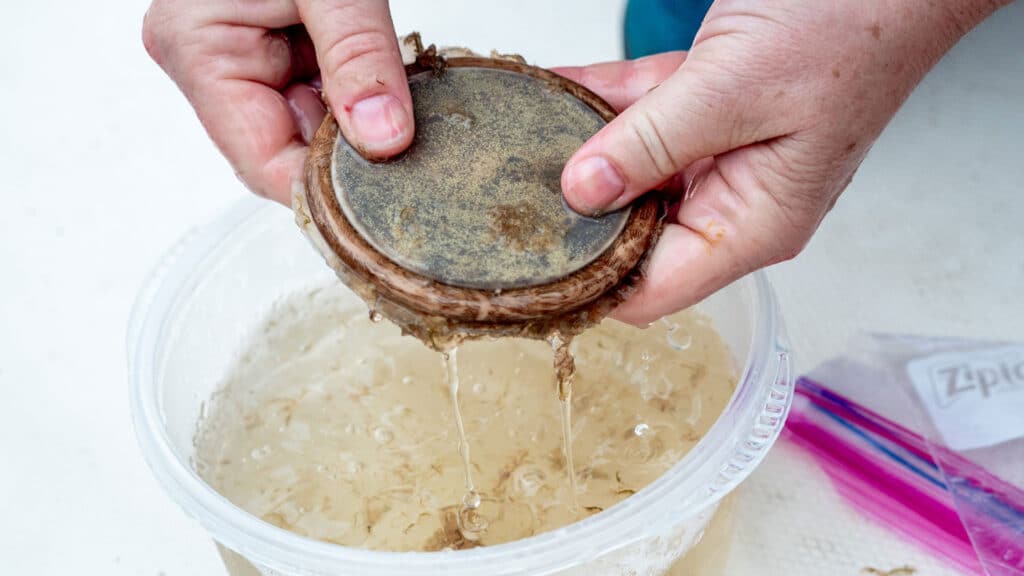
Led by Bethany Cutts, an associate professor in the Department of Parks, Recreation and Tourism Management, the engagement core will connect with community experts and stakeholders to translate research findings and put practices in place to prevent the adverse effects of harmful algal blooms.
“My role is to figure out how, where and who to talk to in the state so that our interdisciplinary team of scientists know where their research could be best used and where data gaps are most important to the people of North Carolina,” Cutts said.
There will also be opportunities for students to get involved with the engagement core.
“Students can collect survey data along the coastline, help distribute and analyze community science and citizen science data, and build maps and analysis from the data produced by our other teams,” Cutts said.
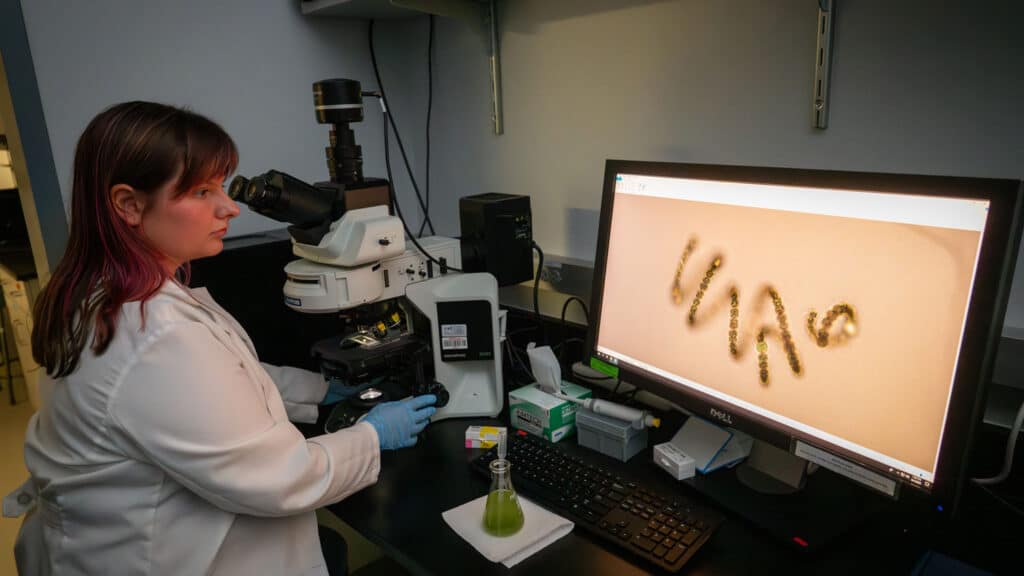
Roussa, who works in Schnetzer’s lab, is excited for the opportunity NC C-CAPE will provide to develop her science communication skills.
“It’s one thing to share your results with other scientists, but it’s another to convey them to the public in a meaningful way,” she said. “That’s something I’m not experienced with, so I’m excited for how NC C-CAPE will help me in the future in that sense.”
NC C-CAPE’s approach of working side-by-side with different industries and communities — including outdoor recreationists and commercial fishers — could yield transformative results.
“Together, we can come up with creative ways to maintain strong coastal economies and rural livelihoods, while inviting the world to enjoy our beautiful natural resources,” Cutts said.
Other NC C-CAPE collaborators include Dan Obenour and Casey Dietrich from the College of Engineering; Cathrine Hoyo and Ryan Paerl from the College of Sciences; and Natalie Nelson from the College of Agriculture and Life Sciences.
The National Science Foundation and the National Institutes of Health will support NC C-CAPE under award numbers OCE-2414792 and 1P01ES035542-01, respectively.
This post was originally published in NC State News.